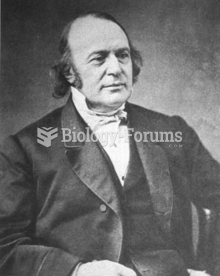Answer 1
Answer: The ideal answer should mention some of the following:
1. Nothing symbolized Roosevelt's active presidency better than his popular reputation as a trust buster. For him, breaking up bad trusts was an assertion of government power that reassured a worried public and encouraged corporate responsibility.
2. As a conservationist, Roosevelt also wanted government to play a more active role in the care and management of the environment.
3. Taft continued Roosevelt's antitrust efforts, and even increased them. He supported the Mann-Elkins Act (1910), which extended the ICC's jurisdiction to telephone and telegraph companies.
4. Taft set aside even more public forest lands and oil reserves than Roosevelt had.
5. He also supported a constitutional amendment authorizing an income tax, which went into effect in
1913 under the Sixteenth Amendment. This was one of the most important accomplishments of the Progressive Era.
6. Wilson built on Roosevelt's precedent to strengthen executive authority.
7. But he wanted to limit the government's role to breaking up monopolies and preventing barriers like tariffs from blocking free enterprise.
8. Wilson endorsed the creation of the Federal Trade Commission (FTC) to oversee business activity and prevent illegal restrictions.
Answer 2
Answer: The ideal answer should include:
1. Roosevelt was modern in that he was very much an activist president.
2. He was, for instance, one of the first to act on the side of labor, and labor unions greatly increased in importance in the modern age.
3. He was the first conservationist president, establishing the national parks system.
4. He was still of the nineteenth century, though. For example, he did not fight for equal rights of African Americans.
Answer 3
Answer: The ideal answer should include:
1. Women started to advocate for suffrage, which increased their visibility.
2. Women were active in a variety of organizations and activities, including settlement houses.
3. Women sometimes united across class lines (e.g., the Women's Trade Union League).
4. Women sometimes challenged gender restrictions with crusades around issues like birth control.
5. Women also sometimes pushed for protective legislation, like maximum hours laws.
6. All of this helped to advance progressivism with more people fighting for the cause.
Answer 4
The ideal answer should include:
1. Many progressives wanted reforms, but they wanted to control them. This is shown in much of the protective legislation for women, which improved women's situation somewhat but still kept them in a lower position.
2. The social reform of this period did not push for racial equality.
3. Social reforms also did not try to change the overall status quo, but just reform them somewhat. The key was moderate reform.
4. Progressives also wanted to Americanize immigrants or limit immigration from certain areas, like southern Europe.
5. Social control dominated, but social reform also did make progress.
Answer 5
Answer: C







